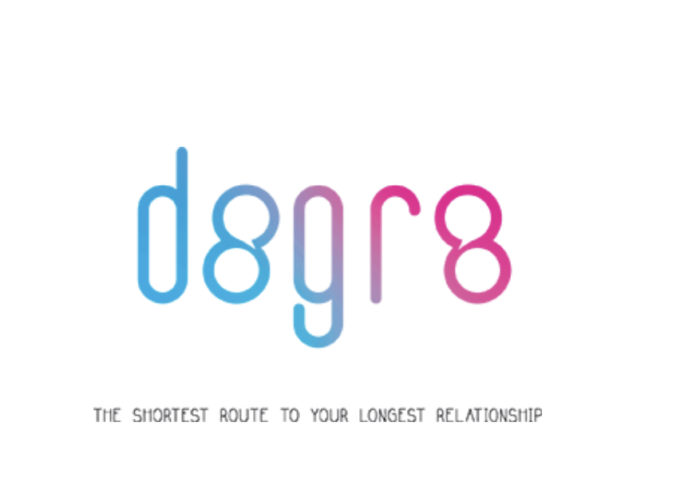Get Effective and Efficient at Shidduch Research
Begin With Your Brain
It might seem loony to go dating on the say-so of a few strangers. Yet, by and large, shidduch research is quite helpful and has an important role to play in your dating.
Why is that? Why do we need to do dating research anyway?
Let’s remind ourselves of the difference between dating in general society and dating in our frum/orthodox context.
Secular dating progresses from hand – heart – head. First, people see if they’re physically attracted, then they figure out whether they can connect emotionally. If both of those check out they consider if their life goals line up. If they do, congrats – champagne and flowers. If not,they have to extract themselves from months or years of invested emotions, intimacy, and vulnerability.
We work in the exact opposite direction, from head – heart – hand. We start with thinking the relationship potential through. Only after we’ve confirmed that do we open ourselves to emotional closeness.
But it all begins with the head. Think this through.
Pre-Dating: Do This Long Before You Start Dating
Identify the top 5 qualities that are most important to you in a relationship. If you haven’t done this already, DO NOT pass go on your dating.
Here are some questions to help you nail down those five qualities:
- What kind of person is most compatible with who I am and who will provide the best balance to my personality?
- What type of home do I want to build?
- Who can help me fulfill my life goals and aspirations?
- What do I want out of a relationship?
If you are crystal clear about what you need, you can avoid building an emotionally meaningful connection with somebody who is simply wrong for you.
We avoid falling because it’s painful and we can wind up in physical therapy.
Don’t fall in love or even into a relationship. You know the drill: falling is painful and it can land you in therapy.
Walking – or even running – towards love intentionally is a much better idea. It’s a proactive process where you act, not a passive process where you’re acted upon by emotions and hormones, or even worse – some diapered guy named Cupid who likes archery.
Next Step, Find Your Missing Person
You’ve narrowed down who you’re looking for. You’ve got a missing person description.
This is the person missing in your life. It’s now time to get this description to people who are likely to have seen him or her.
Dating research is a critical part of this process. You’re asking questions to determine whether the guy/girl you’re considering is your missing person.
Don’t Overdo It, There Are Diminishing Returns
You can check any prospective match until the cows come home. Avoid the CIA routine. What’s critical is that you have enough comfort to meet this person for one date. Just one.
After that one meeting, you can do more research. If there’s no attraction or chemistry, the match is dead in the water and additional research is a waste.
There certainly are some better and worse ways to frame questions. Also, it’s often not WHAT you get as answers but HOW people answer the questions that’ll give you the best intel.
Some Go-To Shidduch Research Lines of Questioning
- Confirm the information you’ve been given about family, job, community, personality etc. is factually correct.
- Listen for enthusiasm/positivity or its opposite. Listen for what is NOT being said. “I think he goes to minyan” or “He is the first one at shachris each morning” refer to the same thing, but they’re totally not the same thing.
- Superlatives are lazy. If you’re told the person is “aMAzing” or “SO special” ask for details. The more specific the better.
- What type of hashkafa or level of observance do they currently maintain?
- Who are their influences?
- What community (yeshiva, school based, shul based, etc.) do they associate with?
- What type of home does this person see themselves building? Again, ask for examples, stories and details.
- What type of home did this individual grow up in? Note: Coming from an unhealthy home should not be a disqualifier if they’ve dealt with it in a healthy way.
- Can you describe 3 strengths and 3 weaknesses of this individual?
- You want to find out if they have the specific needs you believe are critical for you. It’s helpful to drill down and let people know what you’re really asking. Don’t: How intelligent is s/he?” Do: How is their intelligence expressed – intellectually, socially, “street smarts”? Why would you say that?
- What goals and values do they hold in high esteem? (Examples: integrity, closeness to family, ahavas haTorah, being “chill”, financial success). What leads you to believe that?
- Don’t: Are they a happy person? Do: What makes them happy? Tell me more, can you tell me a story to exemplify this?
- Do you have any sense of how they might be as a parent? Have you ever seen them in a parenting type setting?
- What is their level of materialistic needs?
Tailor these to the individual, and feel free to run with opportunities and get off script so that you can get what’s really interesting.
Keep your radar up for familiar names, shules, friends and rabbonim you may have in common so you can expand the reference list you already have. Someone NOT on a resume may have more candid thoughts to share than somebody cherry picked by the prospect you’re researching.
There it is. Do your research. Lead with the head. Don’t overdo it, nothing will give you insight like what you’ll learn on a date. That’s how you efficiently take the shortest distance to your longest relationship!
With 14 years of personal dating experience, including hundreds of men and thousands of dates, Rachel’s highly actionable coaching comes directly from the trenches. Get clarity and traction in your dating today with a free consultation at rachel@d8gr8.com or 90-D8GR8 NOW (903) 847-8669. Find out more at d8gr8.com.






